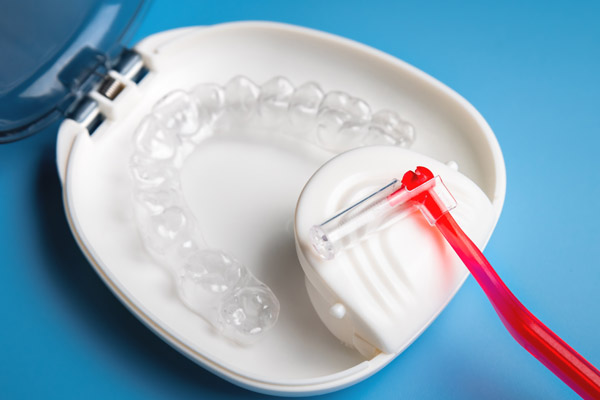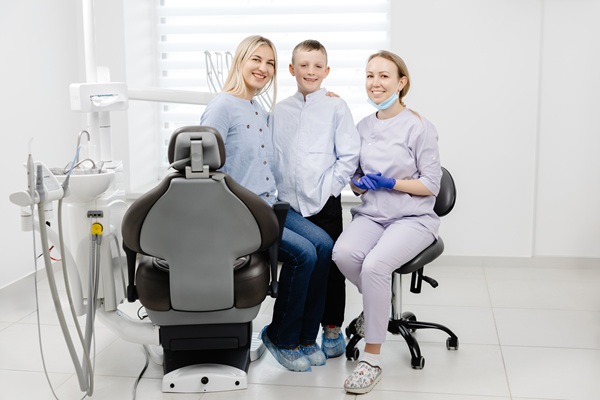How Do Implant-Supported Dentures Work?

Implant-supported dentures are one of the options you should consider if you have lost most of your real teeth. Losing most of your teeth can be a tough experience. It makes you constantly think about the appearance of your mouth, and you might find yourself wanting a bit more after deciding to give dentures a try. Dentures were the primary tooth replacement option for people who have lost most of their natural teeth for decades, but they can take some time to get used to.
Why some opt for implant-supported dentures
Dentures consist of two main parts — artificial teeth that are usually made of acrylic and a plastic framework that rests on the gums. Traditional dentures tend to move around in the wearer's mouth, especially the lower set. It can lead to the formation of sores inside the mouth, the wearer continually having to worry about their teeth falling out and an inability to speak correctly.
Implant-supported dentures are a combination of implants and dentures. The patient gets two to six implants inserted into their jawbone, but, instead of crowns being placed on them, a set of dentures are attached instead. The implants hold the dentures firmly in place, so the wearer no longer has to worry about the prosthetic constantly moving about in their mouth.
In order to qualify for implant-supported dentures, patients should have a sufficient amount of bone tissue to hold the implant in place. Implant-supported dentures can be permanently fixed in place or removable. The removable variety has special attachments that make it possible to connect them to the implants quickly. They are mostly used on the lower set of teeth since dentures worn on that half of the jaw tend to slip the most.
There are two main kinds of removable implant supported dentures:
1. Bar-retained dentures
This variety uses a thin metal bar that is attached to the implants to hold dentures in place. The denture or bar is fitted with a fastening device that is used to clip or fasten the two components together.
2. Ball-retained dentures
These are held in place with a ball-shaped metal connector that attaches directly to the implants. The implants come with corresponding sockets that hold the dentures in place. Both types of removable dentures provide a comfortable way to replace missing teeth without the price tag that comes with replacing multiple teeth with implants.
What goes on during implant installation
A local anesthetic is injected during the start to numb the area that will be worked on. An incision is made into the person's gums to access the jawbone, and the implant is inserted into it. It is left to fuse with the surrounding bone tissue for up to six months. Once the implants have fused with the bone tissue holding them in place, the patient will be able to use them to keep their dentures firmly in place when worn.
Interested in implant-supported dentures?
Looking for a more comfortable missing tooth solution than dentures? Contact our Rockville clinic today to learn more about implant-supported dentures.
Request an appointment here: https://whiteflintfamilydental.com or call White Flint Family Dental at (301) 273-1085 for an appointment in our Rockville office.
Check out what others are saying about our services on Yelp: Read our Yelp reviews.
Recent Posts
If your son or daughter is concerned about crooked teeth or a bad bite, you may want to consider Invisalign® for teens. This is an alternative to metal or ceramic braces, and it has numerous benefits, especially for those who are self-conscious about how they look. There are various reasons why Invisalign may be the…
Visiting a new dental office can be a daunting experience, especially for those unsure of what to expect during their first appointment. Whether you seek general, cosmetic, or pediatric dental care, understanding what happens during a first visit can help reduce anxiety and ensure a smooth experience. A dental office visit typically includes an initial…
A general dentist is often the first to inform parents that a teenage patient needs braces. As an orthodontic option, Invisalign® for teens can produce results in just a few months with minimal discomfort. This process can work to straighten teeth that are out of line, crooked, or twisted, and there may be no need…
Invisalign® for teens can offer adolescents a more comfortable and more discreet option for straightening their teeth. For years, braces were one of the only options for effectively treating a crooked smile. Even though Invisalign® has been providing an alternative for decades, some people may not be familiar with who it is for and how…


